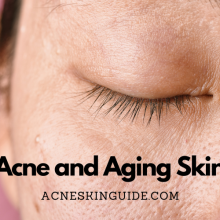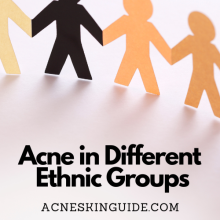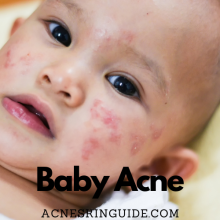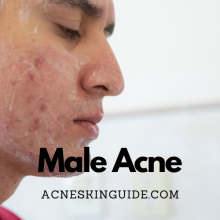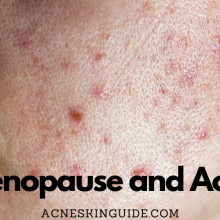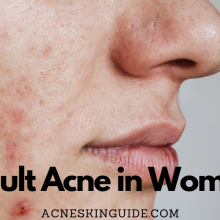Hormonal Acne During Pregnancy | Acne Skin Guide
Hormonal acne is a common issue during pregnancy due to fluctuating hormone levels like androgens and progesterone that increase oil production. Safe over-the-counter treatments include gentle cleansers, benzoyl peroxide, and natural remedies like tea tree oil. For severe cases, prescription options like topical retinoids or oral antibiotics may be recommended after discussing potential side effects. A gentle, pregnancy-friendly skincare routine with mild products is essential.
Home remedies like dietary changes, stress management, and natural ingredients can provide additional relief. It’s important to manage acne flare-ups with spot treatments, avoid triggers, and seek professional dermatological help if needed while addressing emotional impacts. The “pregnancy glow” is often a myth – expectant mothers should embrace self-care and maintain confidence despite acne. With the right approach combining treatments, lifestyle adjustments, and professional guidance, hormonal acne can be safely managed during this transformative period.
#1 Recommended Acne Treatment | #2 Recommended Acne Treatment |
 |  |

Radiant Skin During Pregnancy: Tackling Hormonal Acne Safely
Pregnancy is a beautiful journey, but it can also bring about unwanted changes, including hormonal acne. As a woman’s body goes through a whirlwind of hormonal fluctuations, it’s not uncommon for acne to rear its ugly head. However, with the right approach and safe solutions, expectant mothers can manage their acne and maintain a healthy, glowing complexion.
Understanding the Causes
Hormonal acne during pregnancy is primarily caused by the surge of hormones, particularly androgens and progesterone. These hormonal changes can lead to an overproduction of sebum (oil), which clogs pores and creates an ideal environment for acne-causing bacteria to thrive. Additionally, factors like stress, dietary changes, and pre-existing acne conditions can exacerbate the problem.
Safe Over-the-Counter Treatments
When it comes to treating pregnancy acne, it’s essential to choose safe and effective over-the-counter (OTC) products. Gentle, non-irritating cleansers are recommended to avoid stripping the skin’s natural oils. Topical treatments containing benzoyl peroxide or low concentrations of salicylic acid are generally considered safe, but it’s crucial to carefully evaluate ingredient safety. Natural remedies like tea tree oil and aloe vera can be effective alternatives for treating mild acne during pregnancy.
Prescription Acne Medications
In cases of severe or persistent acne, healthcare providers may recommend prescription medications. Topical retinoids like adapalene are considered low-risk during pregnancy and can be prescribed for more severe cases. Oral antibiotics, such as erythromycin and azithromycin, may be used to treat inflammatory acne, but potential side effects should be discussed with a doctor. Other prescription options like spironolactone may be considered on a case-by-case basis, depending on the severity of acne and the stage of pregnancy.
It’s important to note that some prescription acne medications, such as isotretinoin (Accutane), are strictly contraindicated during pregnancy due to the risk of severe birth defects.
Pregnancy-Friendly Skincare Routine
Adopting a gentle, pregnancy-friendly skincare routine is essential for managing acne. This includes using a mild cleanser, a non-comedogenic moisturizer, and sun protection to prevent further irritation and hyperpigmentation. Spot treatments containing safe ingredients can also be used to target specific blemishes.
Home Remedies and Natural Solutions
In addition to OTC and prescription treatments, there are various home remedies and natural solutions that can help alleviate pregnancy acne. Dietary changes, like increasing intake of zinc, vitamins, and omega-3s, can help reduce inflammation. Stress management techniques, such as yoga and meditation, can also be beneficial. Natural ingredients like honey and oatmeal can be used as gentle, soothing treatments. However, it’s crucial to confirm the safety of any essential oils or natural remedies with a healthcare provider before use.
Managing Acne Flare-ups
When acne flare-ups occur during pregnancy, it’s essential to use spot treatments containing safe ingredients, avoid known triggers like certain foods or products, and seek professional help if needed. It’s also important to address the psychological impact of acne during pregnancy and develop coping strategies to maintain confidence and self-esteem.
Debunking the “Pregnancy Glow” Myth
Many women struggle with acne and other skin issues during pregnancy, debunking the myth of the “pregnancy glow.” It’s important to embrace and care for your skin, prioritizing self-care and maintaining confidence despite potential acne issues.
Seeking Professional Help
If acne is severe, persistent, or not responding to other treatments, it’s crucial to seek professional help from a dermatologist. A dermatologist can also help differentiate hormonal acne from other skin conditions that may require different treatments.
Conclusion
Hormonal acne during pregnancy can be a frustrating and confidence-shattering experience, but expectant mothers have various safe options for managing it. From over-the-counter treatments and prescription medications to natural remedies and lifestyle changes, there are solutions available. However, it’s essential to prioritize safety and consult with healthcare professionals to ensure the well-being of both mother and baby. Embracing self-care, maintaining confidence, and seeking professional help when needed are vital steps in managing hormonal acne during this transformative period.
#1 Recommended Acne Treatment | #2 Recommended Acne Treatment |
 |  |
Summary and FAQs
Can hormonal acne during pregnancy lead to scarring, and if so, how can it be prevented or treated?
Yes, hormonal acne during pregnancy can potentially lead to scarring if the acne is severe or if the lesions are picked or popped incorrectly. When acne lesions rupture, it can damage the skin’s collagen and lead to the formation of acne scars, such as atrophic scars (depressed scars) or hypertrophic scars (raised scars).
To help prevent scarring from hormonal acne during pregnancy, it’s important to follow these steps:
- Avoid picking or popping acne lesions: This can cause further inflammation and skin damage, increasing the risk of scarring.
- Seek early treatment: Consult a dermatologist or healthcare provider promptly to receive appropriate treatment for severe or persistent acne. Early and effective treatment can help prevent acne from worsening and reducing the risk of scarring.
- Use safe, pregnancy-approved acne treatments: Topical treatments like benzoyl peroxide, azelaic acid, or prescription retinoids (like adapalene) can help control acne and reduce the risk of scarring when used under medical supervision.
- Protect inflamed areas: Apply gentle, fragrance-free moisturizers to acne-prone areas to prevent excessive dryness and irritation, which can lead to further inflammation and scarring.
- Consider chemical peels or microneedling: After pregnancy, professional treatments like chemical peels or microneedling can help improve the appearance of acne scars when performed under the guidance of a dermatologist.
If scarring does occur, there are various treatments available, such as laser resurfacing, dermabrasion, subcision, or fillers, but these should be discussed with a dermatologist after pregnancy and breastfeeding have concluded, as some treatments may not be safe during pregnancy or lactation.
Are there any specific dietary recommendations or restrictions that can help reduce hormonal acne during pregnancy?
Yes, there are certain dietary recommendations and restrictions that can help reduce hormonal acne during pregnancy:
Recommendations:
- Increase intake of foods rich in zinc: Zinc plays a crucial role in regulating hormone levels and reducing inflammation. Good sources include lean meats, eggs, legumes, nuts, and seeds.
- Consume more omega-3 fatty acids: Omega-3s have anti-inflammatory properties that can help reduce acne. Good sources include fatty fish like salmon, walnuts, flaxseeds, and chia seeds.
- Eat more antioxidant-rich foods: Antioxidants can help combat oxidative stress, which can contribute to acne. Load up on fruits and vegetables like berries, leafy greens, and tomatoes.
- Stay hydrated: Drinking plenty of water can help flush out toxins and promote healthy skin.
Restrictions:
- Limit intake of high-glycemic foods: Refined carbohydrates and sugary foods can spike insulin levels, potentially worsening acne. Avoid processed snacks, sugary drinks, and white bread.
- Reduce dairy consumption: Some studies suggest that dairy products, particularly those with a high milk protein content, may exacerbate acne due to hormone-like compounds.
- Limit fried and processed foods: These foods are often high in inflammatory oils and additives, which can contribute to acne.
- Avoid excessive caffeine intake: Caffeine can increase stress hormones, potentially aggravating acne.
It’s important to note that dietary changes alone may not completely resolve hormonal acne during pregnancy, but they can be a helpful complementary approach when combined with other safe acne treatments recommended by a healthcare professional.
What are the potential risks or side effects of using essential oils or other natural remedies for acne during pregnancy?
While many essential oils and natural remedies are touted as safe and effective for treating acne during pregnancy, it’s important to be aware of potential risks and side effects associated with their use:
- Essential oils:
- Skin irritation or allergic reactions: Some essential oils can cause skin irritation, redness, or allergic reactions, especially when used undiluted or in high concentrations.
- Hormone disruption: Certain essential oils, such as clary sage and lavender, may have hormone-disrupting properties, which could potentially affect the developing fetus.
- Toxicity: Some essential oils can be toxic if ingested or used in excessive amounts, posing risks to both the mother and the developing baby.
- Other natural remedies:
- Herb-drug interactions: Certain herbs or supplements may interact with medications prescribed during pregnancy, potentially causing adverse effects or reducing their effectiveness.
- Contamination: Natural remedies are not regulated for quality or purity, and some may contain contaminants or unlisted ingredients that could be harmful during pregnancy.
- Lack of research: Many natural remedies lack substantial research on their safety and efficacy during pregnancy, making it difficult to assess potential risks.
Potential side effects of using natural remedies during pregnancy may include:
- Gastrointestinal issues: Some herbs or supplements can cause nausea, vomiting, or digestive discomfort when taken orally.
- Uterine contractions: Certain herbs, such as blue cohosh or black cohosh, may stimulate uterine contractions, increasing the risk of preterm labor.
- Bleeding or miscarriage: Some natural remedies, like high doses of vitamin A or certain herbs, have been linked to an increased risk of bleeding or miscarriage.
It’s crucial to consult with a healthcare professional, such as a obstetrician or dermatologist, before using any essential oils or natural remedies during pregnancy. They can evaluate the potential risks and benefits based on the specific remedy, dosage, and stage of pregnancy. Additionally, it’s essential to disclose the use of any natural remedies to ensure proper monitoring and avoid potential complications.
How can expectant mothers deal with the emotional and psychological impact of hormonal acne, and what support resources are available?
Dealing with hormonal acne during pregnancy can be emotionally and psychologically challenging for expectant mothers. The fluctuating hormones, combined with the physical changes and stress of pregnancy, can take a toll on a woman’s self-esteem and overall well-being. However, there are several strategies and support resources available to help manage the emotional impact:
- Practice self-compassion: It’s important to be kind and patient with yourself during this journey. Understand that hormonal acne is a common issue and not a reflection of poor hygiene or self-care.
- Seek emotional support: Surround yourself with a network of supportive friends, family members, or a partner who can provide encouragement and understanding. Consider joining online support groups or forums for expectant mothers dealing with similar issues.
- Consult a therapist or counselor: If the emotional impact of hormonal acne becomes overwhelming, consider seeking professional help from a therapist or counselor. They can provide coping strategies, cognitive-behavioral techniques, and a safe space to discuss your feelings.
- Focus on self-care: Engage in activities that promote relaxation and well-being, such as gentle exercise, meditation, or prenatal yoga. Taking care of your physical and mental health can help boost your mood and resilience.
- Consider support groups: Many hospitals or community centers offer support groups for expectant mothers, where you can connect with others going through similar experiences and share coping strategies.
- Explore online resources: Numerous online resources, blogs, and forums are dedicated to providing information and support for women dealing with hormonal acne during pregnancy. These platforms can offer valuable insights and a sense of community.
- Communicate with your healthcare provider: Don’t hesitate to discuss your emotional concerns with your obstetrician, dermatologist, or other healthcare providers. They can offer guidance, recommend appropriate resources, or refer you to a mental health professional if needed.
Remember, hormonal acne is a temporary condition, and prioritizing your emotional well-being during this journey is crucial for both you and your developing baby. With the right support system and coping strategies, you can navigate this challenge and embrace the transformative experience of pregnancy with confidence and resilience.
Is it safe to continue using birth control pills or other hormonal contraceptives to manage acne during pregnancy, or can these exacerbate the issue?
No, it is not safe or recommended to continue using birth control pills or other hormonal contraceptives to manage acne during pregnancy. In fact, using hormonal contraceptives during pregnancy can potentially exacerbate hormonal acne and pose risks to the developing fetus.
Here’s why it’s not advisable to use hormonal contraceptives for acne management during pregnancy:
- Increased hormone levels: Hormonal contraceptives like birth control pills contain synthetic hormones like estrogen and progestin. When taken during pregnancy, these additional hormones can further disrupt the already fluctuating hormone levels, potentially worsening hormonal acne.
- Risks to the fetus: The synthetic hormones in birth control pills and other hormonal contraceptives can cross the placenta and potentially affect the development of the fetus. This can increase the risk of birth defects, low birth weight, and other complications.
- Contraindicated during pregnancy: Most healthcare providers recommend discontinuing hormonal contraceptives as soon as pregnancy is confirmed, as they are not designed or intended for use during pregnancy.
Instead of relying on hormonal contraceptives, it’s advisable to explore safer alternatives for managing hormonal acne during pregnancy, such as:
- Topical treatments: Over-the-counter or prescription topical treatments containing ingredients like benzoyl peroxide, azelaic acid, or adapalene (a topical retinoid) may be recommended by a dermatologist or healthcare provider, as they are generally considered safe for use during pregnancy.
- Natural remedies: Under medical supervision, some natural remedies like tea tree oil, aloe vera, or certain dietary changes may help alleviate mild to moderate hormonal acne during pregnancy.
- Lifestyle modifications: Reducing stress, staying hydrated, and following a balanced diet can also contribute to better skin health during pregnancy.
It’s crucial to consult with an obstetrician, dermatologist, or other healthcare professionals to develop a safe and effective acne management plan during pregnancy. They can evaluate your individual situation, provide appropriate recommendations, and monitor any potential risks or side effects.

